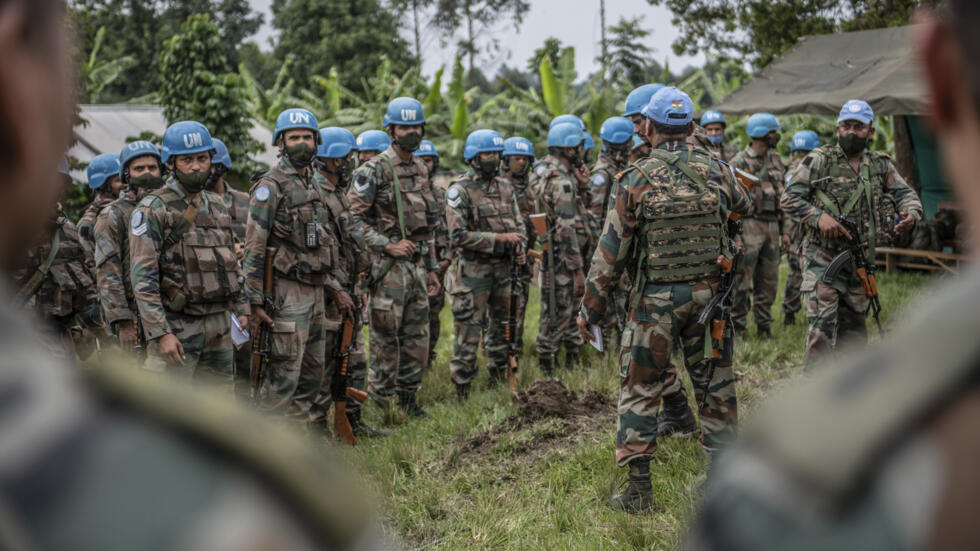
DRC: UN mission withdraws from South Kivu after 25 years
The United Nations Organization Stabilization Mission in the Democratic Republic of Congo (MONUSCO) officially departed from the South Kivu province on Sunday, June 30, marking the end of a 25-year presence in the region.
Approved by the UN Security Council in December 2023, the total withdrawal of the 15,000 peacekeepers stationed across the DRC is planned in three phases.
The completion of this phase in South Kivu has been achieved, though timelines for withdrawals from Ituri and North Kivu remain undetermined.
A ceremony was held on Tuesday, June 25, in Kavumu, 32 kilometers from the provincial capital Bukavu, attended by several dignitaries including MONUSCO chief Bintou Keita, Congolese Prime Minister Judith Suminwa Tuluka, and South Kivu Governor Jean-Jacques Purusi.
During the event, MONUSCO presented a donation of equipment valued at $10 million to Congolese authorities.
Additionally, via a press release, MONUSCO announced the transfer of an heliport and base in Rutemba near Uvira to the Congolese Armed Forces (FARDC).
Originally established as MONUC by a UN Security Council resolution on November 30, 1999, following the Lusaka ceasefire agreement in July of that year which ended the Second Congo War, the mission evolved into MONUSCO to address ongoing instability and violence in the region.
The conflict pitted the DRC, supported by Angola, Namibia, and Zimbabwe, against various Congolese rebel groups backed by Rwanda, Uganda, and Burundi.
Despite its historical significance and substantial annual budget exceeding $1 billion, MONUSCO faced criticism from Kinshasa and the Congolese population for perceived inefficacy in protecting civilians and addressing armed group activities.
Recent years saw violent protests demanding the departure of peacekeepers accused of inaction against armed groups that have plagued eastern DRC for three decades, resulting in civilian and military casualties and widespread looting.
In November 2019 and April 2021, MONUSCO faced heightened scrutiny amid continued atrocities by the Allied Democratic Forces (ADF), rebels entrenched in eastern DRC since the mid-1990s, responsible for mass civilian killings.
MONUSCO’s withdrawal coincides with ongoing instability in North Kivu, highlighted by a major attack by the Movement of 23 March (M23) rebels, allegedly supported by the Rwandan military.
The departure marks a pivotal moment for the DRC as it navigates security challenges independently, amidst ongoing efforts to stabilize the region and promote sustainable peace.



